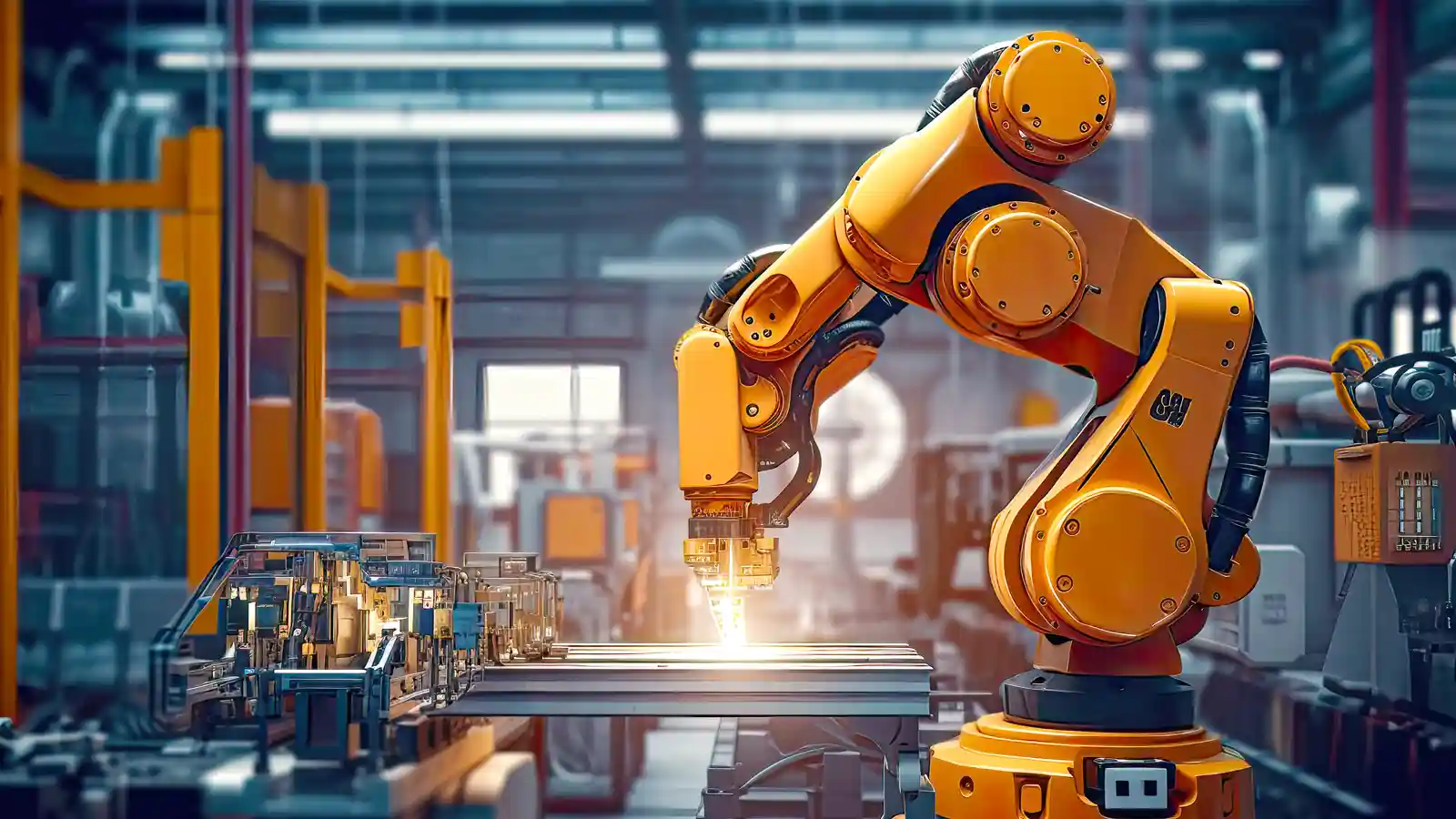Top 10 Benefits of Using AI in Manufacturing
 Alias Ceasar
Alias CeasarThe manufacturing industry is undergoing a radical transformation. With the advent of Industry 4.0, technologies like Artificial Intelligence (AI) are revolutionizing how products are designed, produced, and delivered. AI is no longer a futuristic concept—it’s a present-day game changer, helping manufacturers streamline operations, improve product quality, and respond faster to market demands.

In this blog post, we’ll explore the top 10 benefits of using AI in manufacturing and how it’s shaping the future of the industry.
1. Predictive Maintenance
Traditional maintenance schedules often result in unnecessary downtime or unexpected equipment failures. AI-powered predictive maintenance uses data from sensors and historical patterns to predict when machines are likely to fail. This allows manufacturers to:
Prevent unplanned downtime
Reduce maintenance costs
Extend equipment life
By detecting anomalies early, manufacturers can fix issues before they escalate, keeping production lines running smoothly.
2. Improved Quality Control
AI systems can inspect products with a level of accuracy and consistency that surpasses human inspectors. Machine vision powered by AI can:
Detect defects in real time
Analyze patterns in product quality
Ensure adherence to specifications
This results in fewer defective products, higher customer satisfaction, and less waste.
3. Enhanced Supply Chain Management
AI can analyze vast amounts of supply chain data to optimize sourcing, logistics, and inventory. With AI, manufacturers can:
Predict demand more accurately
Optimize delivery routes and schedules
Mitigate risks from supplier disruptions
This ensures smoother operations and helps companies adapt to market fluctuations more efficiently.
4. Process Optimization
AI algorithms can identify inefficiencies in manufacturing processes and recommend improvements. For example:
Adjusting machine parameters for optimal performance
Reconfiguring production lines based on demand
Automating repetitive tasks
These optimizations lead to increased throughput, better resource utilization, and lower production costs.
5. Product Design and Innovation
AI accelerates the design process by analyzing customer feedback, usage data, and market trends. It enables:
Generative design: AI suggests optimal product designs based on constraints
Faster prototyping and testing
Personalization of products at scale
This shortens the time-to-market and drives innovation across product lines.
6. Energy Efficiency
AI helps manufacturers monitor and manage energy usage more effectively. Through predictive analytics and real-time monitoring, AI can:
Identify energy-intensive processes
Recommend energy-saving strategies
Automate power management
This reduces operational costs and supports sustainability goals.
7. Worker Safety and Risk Management
AI-powered wearables, cameras, and sensors enhance workplace safety. These technologies can:
Detect hazardous conditions in real time
Monitor compliance with safety protocols
Predict and prevent accidents
Safer environments lead to fewer injuries, better morale, and lower insurance costs.
8. Cost Reduction
By automating tasks, minimizing waste, and optimizing operations, AI significantly reduces manufacturing costs. Some key areas of cost savings include:
Labor (through automation)
Raw materials (via better planning)
Downtime (with predictive analytics)
These savings contribute directly to increased profitability and competitive advantage.
9. Real-Time Decision Making
AI enables manufacturers to make fast, data-driven decisions by processing massive datasets in real time. Whether it's adjusting a production schedule or rerouting a shipment, AI empowers teams to:
Respond quickly to disruptions
Adapt to changing customer demands
Maximize operational efficiency
This agility is vital in today’s dynamic and competitive markets.
10. Scalability and Flexibility
AI solutions can easily scale with growing business needs. Whether you’re a small factory or a global enterprise, AI systems can:
Handle increasing data volumes
Support multi-site operations
Integrate with existing ERP and MES systems
This ensures manufacturers remain agile and prepared for future growth.
Conclusion
AI is not just a buzzword—it’s a transformative force in manufacturing. From predictive maintenance and quality control to innovation and energy efficiency, AI in Manufacturing offers numerous benefits that help companies become smarter, faster, and more resilient.
Embracing AI is no longer optional for manufacturers who want to stay competitive—it’s a strategic imperative. As technology continues to evolve, those who invest early will be best positioned to lead the future of manufacturing.
Subscribe to my newsletter
Read articles from Alias Ceasar directly inside your inbox. Subscribe to the newsletter, and don't miss out.
Written by
